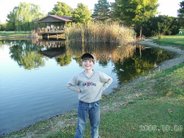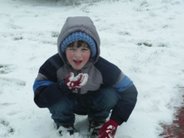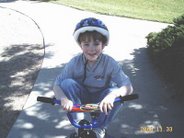[HOME to OASIS] [IMPORTANT NEWS] [BOOKSTORE] [MESSAGE BOARDS]
What Is Asperger Syndrome?
By Barbara L. Kirby Founder of the OASIS Web site (http://www.aspergersyndrome.org/) Co-author of THE OASIS GUIDE TO ASPERGER SYNDROME (Crown, 2001, Revised 2005)
Asperger Syndrome or (Asperger's Disorder) is a neurobiological disorder named for a Viennese physician, Hans Asperger, who in 1944 published a paper which described a pattern of behaviors in several young boys who had normal intelligence and language development, but who also exhibited autistic-like behaviors and marked deficiencies in social and communication skills. In spite of the publication of his paper in the 1940's, it wasn't until 1994 that Asperger Syndrome was added to the DSM IV and only in the past few years has AS been recognized by professionals and parents.
Individuals with AS can exhibit a variety of characteristics and the disorder can range from mild to severe. Persons with AS show marked deficiencies in social skills, have difficulties with transitions or changes and prefer sameness. They often have obsessive routines and may be preoccupied with a particular subject of interest. They have a great deal of difficulty reading nonverbal cues (body language) and very often the individual with AS has difficulty determining proper body space. Often overly sensitive to sounds, tastes, smells, and sights, the person with AS may prefer soft clothing, certain foods, and be bothered by sounds or lights no one else seems to hear or see. It's important to remember that the person with AS perceives the world very differently. Therefore, many behaviors that seem odd or unusual are due to those neurological differences and not the result of intentional rudeness or bad behavior, and most certainly not the result of "improper parenting".
By definition, those with AS have a normal IQ and many individuals (although not all), exhibit exceptional skill or talent in a specific area. Because of their high degree of functionality and their naiveté, those with AS are often viewed as eccentric or odd and can easily become victims of teasing and bullying. While language development seems, on the surface, normal, individuals with AS often have deficits in pragmatics and prosody. Vocabularies may be extraordinarily rich and some children sound like "little professors." However, persons with AS can be extremely literal and have difficulty using language in a social context.
At this time there is a great deal of debate as to exactly where AS fits. It is presently described as an autism spectrum disorder and Uta Frith, in her book AUTISM AND ASPERGER'S SYNDROME, described AS individuals as "having a dash of Autism". Some professionals feel that AS is the same as High Functioning Autism, while others feel that it is better described as a Nonverbal Learning Disability. AS shares many of the characteristics of PDD-NOS (Pervasive Developmental Disorder; Not otherwise specified), HFA, and NLD and because it was virtually unknown until a few years ago, many individuals either received an incorrect diagnosis or remained undiagnosed. For example, it is not at all uncommon for a child who was initially diagnosed with ADD or ADHD be re-diagnosed with AS. In addition, some individuals who were originally diagnosed with HFA or PDD-NOS are now being given the AS diagnosis and many individuals have a dual diagnosis of Asperger Syndrome and High Functioning Autism.
For your information, I've included below a copy of the DSM IV Description. In addition, I've also added a more down-to-earth description that was originally posted to the autism listserv.
Diagnostic and Statistical Manual of Mental Disorders (DSM IV) Description (p77)
A description provided by Lois Freisleben-Cook
Diagnostic Criteria For 299.80 Asperger's DisorderA. Qualitative impairment in social interaction, as manifested by at least two of the following:
marked impairments in the use of multiple nonverbal behaviors such as eye-to-eye gaze, facial expression, body postures, and gestures to regulate social interaction
failure to develop peer relationships appropriate to developmental level
a lack of spontaneous seeking to share enjoyment, interests, or achievements with other people (e.g. by a lack of showing, bringing, or pointing out objects of interest to other people)
lack of social or emotional reciprocity
B. Restricted repetitive and stereotyped patterns of behavior, interests, and activities, as manifested by at least one of the following:
encompassing preoccupation with one or more stereotyped and restricted patterns of interest that is abnormal either in intensity or focus
apparently inflexible adherence to specific, nonfunctional routines or rituals
stereotyped and repetitive motor mannerisms (e.g., hand or finger flapping or twisting, or complex whole-body movements)
persistent preoccupation with parts of objects
C. The disturbance causes clinically significant impairment in social, occupational, or other important areas of functioning
D. There is no clinically significant general delay in language (e.g., single words used by age 2 years, communicative phrases used by age 3 years)
E. There is no clinically significant delay in cognitive development or in the development of age-appropriate self-help skills, adaptive behavior (other than social interaction), and curiosity about the environment in childhood
F. Criteria are not met for another specific Pervasive Developmental Disorder or Schizophrenia
A More Down-to-Earth Descriptionby Lois Freisleben-Cook
I saw that someone posted the DSM IV criteria for Asperger's but I thought it might be good to provide a more down to earth description. Asperger's Syndrome is a term used when a child or adult has some features of autism but may not have the full blown clinical picture. There is some disagreement about where it fits in the PDD spectrum. A few people with Asperger's syndrome are very successful and until recently were not diagnosed with anything but were seen as brilliant, eccentric, absent minded, socially inept, and a little awkward physically.
Although the criteria state no significant delay in the development of language milestones, what you might see is a "different" way of using language. A child may have a wonderful vocabulary and even demonstrate hyperlexia but not truly understand the nuances of language and have difficulty with language pragmatics. Social pragmatics also tend be weak, leading the person to appear to be walking to the beat of a "different drum". Motor dyspraxia can be reflected in a tendency to be clumsy.
In social interaction, many people with Asperger's syndrome demonstrate gaze avoidance and may actually turn away at the same moment as greeting another. The children I have known do desire interaction with others but have trouble knowing how to make it work. They are, however, able to learn social skills much like you or I would learn to play the piano.
There is a general impression that Asperger's syndrome carries with it superior intelligence and a tendency to become very interested in and preoccupied with a particular subject. Often this preoccupation leads to a specific career at which the adult is very successful. At younger ages, one might see the child being a bit more rigid and apprehensive about changes or about adhering to routines. This can lead to a consideration of OCD but it is not the same phenomenon
Many of the weaknesses can be remediated with specific types of therapy aimed at teaching social and pragmatic skills. Anxiety leading to significant rigidity can be also treated medically. Although it is harder, adults with Asperger's can have relationships, families, happy and productive lives.
NOTE: Lois Freisleben-Cook's description was originally a post to the bit.listserv.autism newsgroup/listserv . I thought it was an interesting explanation and included it on this site. A visitor recently pointed out that not all Asperger Syndrome children exhibit superior intelligence and felt that the post was somewhat misleading. It is my understanding that the majority of children diagnosed with AS do have at least an I.Q. in the normal range and that many children do have I.Q.'s in the superior range. It is important that you take the time to read through several explanations of AS, many of which are available on O.A.S.I.S. In addition, use the bibliographies, the libraries, and those professionals working with you to further your knowledge about Asperger Syndrome.
Subscribe to:
Post Comments (Atom)


























 This website is part of the autism-assembly, this is a coalition of
members of the autistic community who share the common goal of seeking
acceptance for those on the autistic spectrum, who aim to educate about
autism, and who are not seeking a cure for autism. This is part of the
global autism rights movement.
This website is part of the autism-assembly, this is a coalition of
members of the autistic community who share the common goal of seeking
acceptance for those on the autistic spectrum, who aim to educate about
autism, and who are not seeking a cure for autism. This is part of the
global autism rights movement.



No comments:
Post a Comment